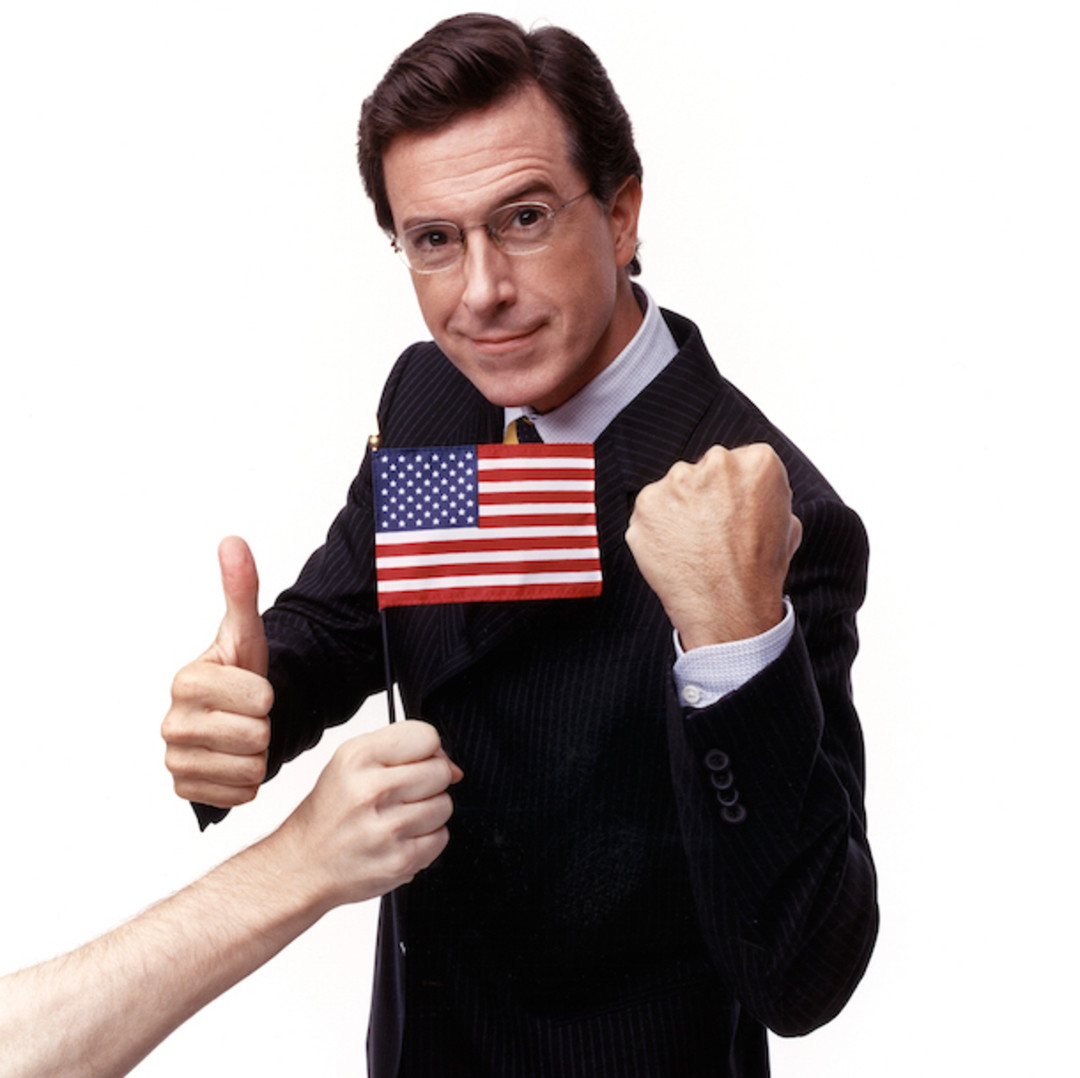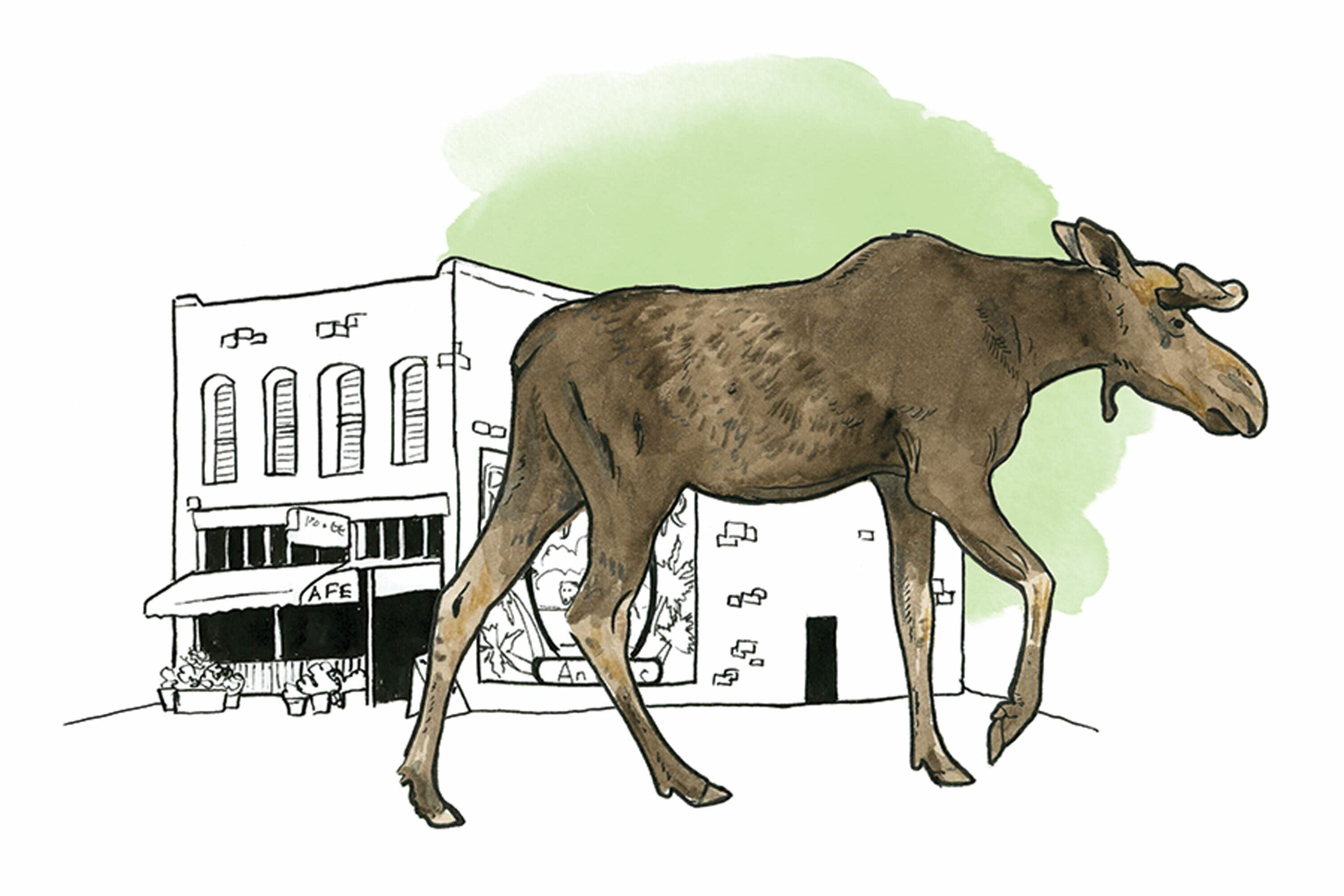The End of 'The Colbert Report' and the Loss of TV's Greatest Character

Image: Photo Courtesy Martin Crook
Tonight America loses the greatest character in television history. And that’s the God’s honest truthiness.
After nine years, Stephen Colbert is bidding adieu to The Colbert Report. Through both Democratic and Republican leadership, the show’s consistency never wavered or dipped to an identifiable low point. And while the show’s stellar writing staff deserves much of the credit, Colbert’s own commitment to the extremely conservative pundit character has been almost unfathomably brilliant. Born in the age where cable news was shifting to model-based partisan delivery of opinions via talking heads, the joke of the persona inspired by the self-important arrogant bravado of "Papa Bear" Bill O'Reilly could've easily worn thin in months. But it simply never got tired. 1447 episodes and it never got tired (for comparison, at the end of its current season The Simpsons will be at episode 564).
Even if Colbert didn’t provide, by sheer volume, the most laughs of any fictional persona in TV history (which he did), the character reigns supreme because he had to live it day in and day out in front of a studio audience and the rest of the Colbert Nation. It's one thing to write and hone buffoonery in the scripted short-run seasons of a sitcom. It’s an entirely different matter having to react to daily events, mine every nugget of comedy, then filter it through the the prism of a fictional persona. The other greats of the comedy news desk—Jon Stewart, Jon Oliver, or Saturday Night Live’s best Weekend Update teams (Seth Meyers, Tina Fey, Amy Pohler, etc.)—had the advantage of being able to express disbelief and anger in their own true voice. It's easy to incredulously say (as Meyers and Pohler explicitly did), "What?!?" Colbert had to filter it through the lens of a character who generally saying the opposite of what he believed but still conveyed that same sentiment, and still somehow managed to be the most effective of the lot.
And while taking irresponsibly bold stands in the name of partisan politics fleshed out the Colbert persona, the key to the character was the joy Colbert brought to the role. It was method acting with a wink. Colbert’s personableness let unreality of the Colbert character always felt like somewhat of an inside joke between the viewer and the host (granted, it was the least subtle and widest spread inside joke of all time, but remember that early on some people still mistook the character as totally genuine). The moments when he broke and laughed at one of the writers’ jokes or playfully cursed himself for flubbing a line were nearly as enjoyable as the finest honed comedy because it was the real Colbert popping out for a split second. Similarly, he couldn’t help but nerd out when a guest associated with J.R.R. Tolkien came on the show or revel in glee when one-upping guests at Biblical knowledge. Colbert was able to keep the character so consistently strong because he genuinely had fun portraying him.
The joke density on The Colbert Report was unparalleled, in part because the show found an absurd amount of reoccurring segments that worked: from staples like The Word, Tip of the Hat, Wag of the Finger, ThreatDown, and Cheating Death with Dr. Stephen T. Colbert D.F.A., to season or topic specific pieces like Cold War Update or The Blitzkrieg on Grinchitude, to interview series like Better Know a District and Difference Makers. The repeated segments established a familiar pattern to the point where loyal viewers could identify which segment he was setting up within a few words, but there were enough substance to them to avoid growing stale. Even something as simple as the ever-changing digitally-generated words that Colbert jumped off of in the intro credits package was a spot for a joke (personal favorite: “From C to Silent T”). That’s not to say there wasn’t insight behind all the humor. His biggest exposure of government hooey came in 2011 when actually formed his own political action committee (and later Super PAC) to expose the ludicrous nature of the campaign finance system (and raised over a $1 million for charity in the process). It was a months-long can you believe this is actually how this works? gag, with a message. Yes, the news is important, but it’s also completely #$@&!@! ridiculous. The Colbert Report never lost its silly soul.
The Colbert Report was also a unique platform for guests. Sure, Colbert’s quick and witty comebacks made each interview with a celebrity a hoot, but more importantly, the interviews became an actual platform for knowledge. The Colbert Report became a late night talk show for scientists, authors, and other intellectuals. You could tune in and listen to Neil DeGrasse Tyson (Colbert’s most frequent guest) talk about astrophysics, George Saunders discuss short stories, and Bill McKibben speak about climate change. And while Colbert would put them through the comedic ringer, he always brought a boyish curiosity to the table. He wanted to learn, which made it easy for the audience to follow his lead.
The Colbert character was always the spectacle, the center of attention. This was best illustrated by the way he’d run over to the guests for the interview segment, stealing and fully basking in the audience’s applause (another bit that never got old). He yanked the spotlight his way with persistent force, whether it was contemplating a presidential run (and polling better than actual candidates), turning an injury sustained while pre-show dancing to Beyoncé into a faux campaign against "wrist violence" with the Livestrong parodying red plastic Wriststrong bracelets (which sold thousands with the money going to the Yellow Ribbon Fund), getting a myriad of things named after him (a bridge in Hungary, a Ben and Jerry's ice cream, a treadmill in space, etc.), or even the largely bland forgettable Rally to Restore Sanity and/or Fear at the National Mall. As the show made the point of emphasizing this week, Colbert was not the pundit for actual America, but for our idealized flag-waving, patriotic, "U-S-A!" chanting America. He was boisterous, brash, and never apologized because he never believed he was wrong, and that was more important than the facts. He was the world superpower. He was #1.
Colbert’s new gig as host of The Late Show on CBS will almost certainly be enjoyable. The real Colbert is an imminently likeable and funny guy. But odds are that it’ll just be another late night talk show. He’ll bring his own flair, but it won’t be that different than his competitors on ABC or NBC. It’ll be another show with jokes up top followed by celebrity interviews. It'll be like many other shows on TV. There was nothing else on TV like The Colbert Report and there probably won’t be again.
God bless Stephen Colbert. And God bless America.




